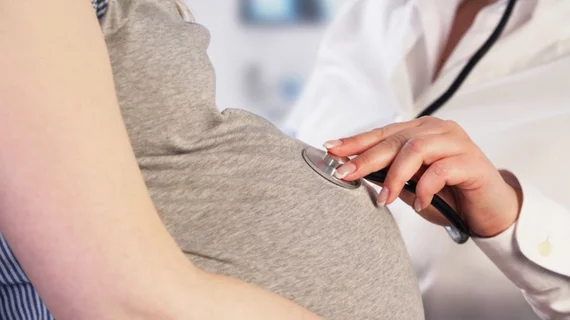Why 'leaky' heart valves in pregnant women should not be ignored
Women with a history of regurgitant or “leaky” heart valves may be at an increased risk for adverse obstetric and cardiovascular complications during pregnancy, according to new research out of Johns Hopkins Medicine.
The analysis, published in the American Journal of Cardiology, found that women with that particular form of heart valve disease, as well as those with narrowed or stenotic valves, are 100 times more likely to have cardiac complications such as heart failure at the time of delivery compared with women without heart valve disease.
The team extrapolated data from 20,000 medical records included in the 2016–2018 National Inpatient Sample. They compared demographics, medical conditions, and obstetric and cardiovascular complications at delivery.
The authors found that, from a total of almost 11.2 million delivery hospitalizations in 48 states and the District of Columbia, 20,349 women had a history of valvular heart disease. While 5.1% of women with valvular disease had hypertension, that number was less than 1% among women without valvular disease.
In addition, obstetric and fetal complications such as preeclampsia were 90% more common, and placental abruption was 30% more common, in women with valvular heart disease.
The authors also noted that the risk of hemorrhaging during delivery was 40% more likely to occur among those with any form of heart valve disease.
Overall, mitral valve regurgitation was the most common form of valve disease among the women in the study, impacting 45% of those with disease, followed by mitral stenosis (26%).
In a press release, lead author Anum Minhas, MD, MHS, chief clinical and research fellow in the division of cardiology at Johns Hopkins Medicine, says the study was motivated by real-life experiences from women who had a history of severe valvular disease and a dearth of current research about the value of current assessment tools.
“Unfortunately, so much of women’s health practices has been dominated by individual experiences and experts saying they believe something to be true rather than based on evidence,” Minhas said. “Our findings suggest significant obstetric and cardiovascular complications are associated with regurgitant valves, challenging our current way of thinking that regurgitant valves are benign. The data tell us that we really can’t assume that women who have leakier heart valves are going to be OK during pregnancy. They should get the same amount of attention that women with valve stenosis get.”
Senior author Erin Michos, MD, MHS, director of women’s cardiovascular health and associate professor of medicine at the Johns Hopkins University School of Medicine, added that the team's study should be a wake-up call for increased screening of women for all types of valve disease before and during pregnancy.
Read the full study here.
